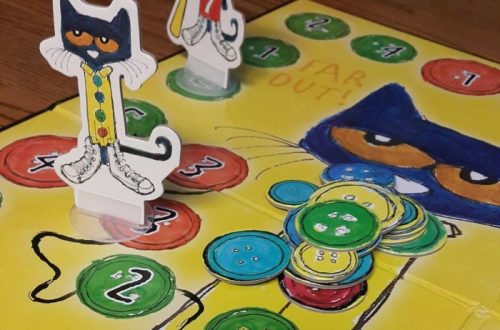Introduction
The Jeopardy board game is a fun quiz-based game. It is inspired by the famous TV show “Jeopardy!”. Players earn points by answering questions from various categories. The game promotes learning in a competitive setting.
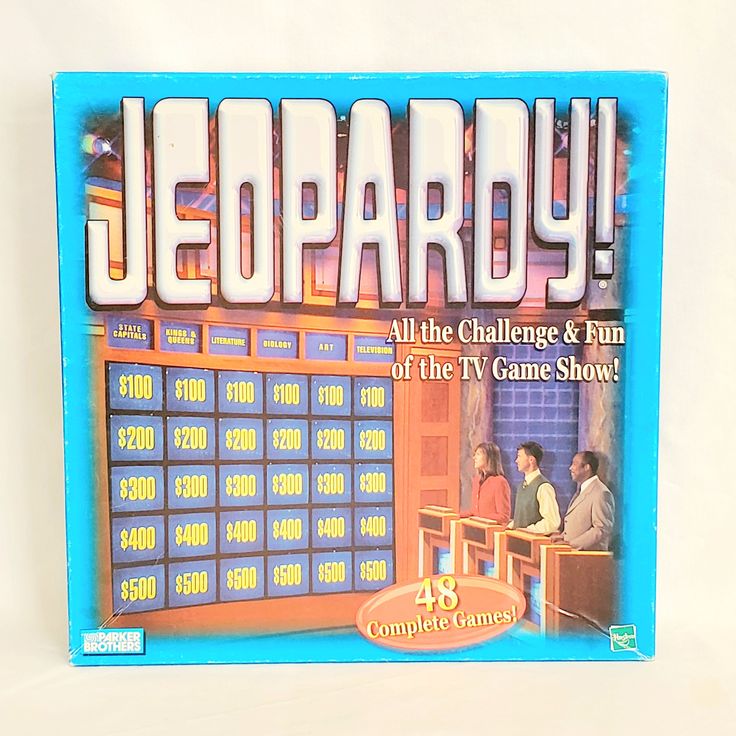
History and Origins of Jeopardy
“Jeopardy!” first aired in 1964 and was created by Merv Griffin. It became a beloved game show in the U.S., known for its unique answer-and-question format. Over the decades, it inspired board games and educational tools. The board game version helps families enjoy the essence of the TV show at home.
Overview of the Game’s Concept and Design
The Jeopardy board game features a game board with categories and clues. Each clue has a point value. Players choose a category, answer clues, and earn points. The game’s design encourages trivia knowledge, quick thinking, and strategy. It brings players together for an exciting quiz experience.
Setting Up the Jeopardy Board Game
Setting up the Jeopardy board game is straightforward and exciting. This section explains the materials needed and how to prepare the game board to ensure a smooth and enjoyable experience.
Required Components and Materials
To play the Jeopardy board game, gather the following components:
- Game Board: The central element with categories and clues displayed.
- Category Cards: Represent different trivia topics, such as science, history, or entertainment.
- Clue Sheets: Questions or prompts with corresponding point values for each category.
- Point Markers or Score Trackers: Used to record players’ points.
- Timer: Keeps the pace of play consistent for answering questions.
- Whiteboards or Notepads: Allow players to write down answers.
- Pens or Markers: Essential for recording responses during the game.
- Host Instructions: Guidelines explaining how to regulate gameplay.
Ensure all materials are organized and ready before starting the game.
Preparing the Game Board and Categories
Follow these steps to set up the Jeopardy game board:
- Arrange the Board: Place the board where all players can see it clearly.
- Attach Category Cards: Position the cards in rows at the top of the board.
- Organize Clues: Attach clues beneath each category, ordered by point value.
- Select Categories: Choose trivia topics based on players’ interests to make it engaging.
- Assign Point Values: Ensure points are visible and arranged correctly for each clue.
- Prepare Host Notes: Compile instructions for the host to facilitate smooth gameplay.
Once the board is ready, gather players and explain the rules to start the game.
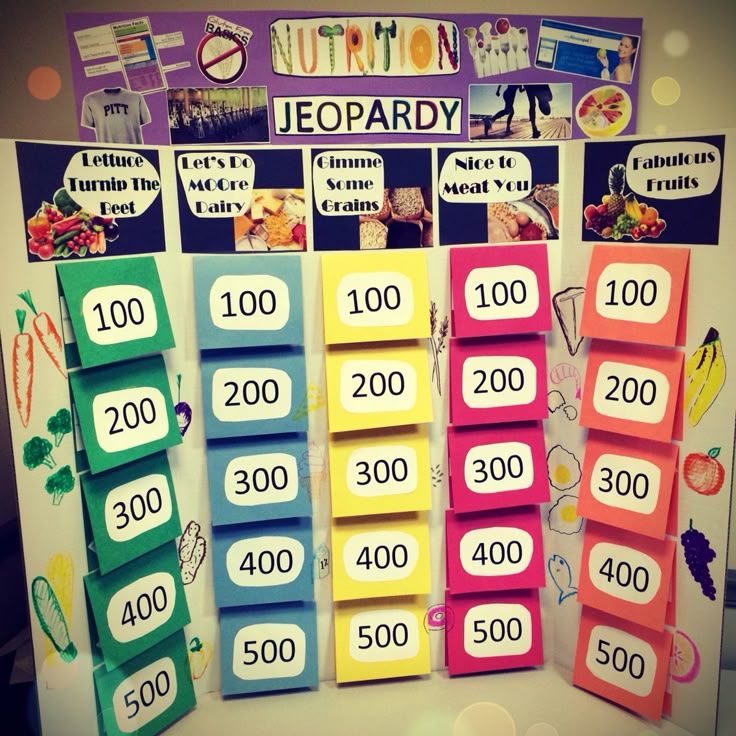
Gameplay Guidelines for Jeopardy
The Jeopardy board game is exciting and requires specific rules to ensure smooth gameplay. This section outlines key aspects like the host’s duties, player roles, and the scoring system to enhance the experience.
Understanding the Role of the Host
The host plays a crucial role in the Jeopardy board game. They manage the game’s flow and maintain fairness. Key responsibilities include:
- Reading Clues: The host reads the questions or prompts clearly and loudly for all players to hear.
- Judging Answers: They decide if a player’s answer is correct based on the clue and game rules.
- Tracking Scores: The host records points earned by each player during the game.
- Timing Responses: The host uses a timer to ensure players respond within the allocated time.
- Managing Categories: They track which categories and clues have been used.
The host must stay neutral and ensure everyone understands the rules.
Explaining the Turn Structure and Player Roles
Understanding turn structure is critical for smooth gameplay. Here’s how it works:
- Starting the Game: Players decide who goes first, typically by a random method like rolling dice.
- Player Actions on Their Turn: On their turn, each player picks a category and point value from the board.
- Answering Clues: The host reads the clue, and the player provides an answer in the form of a question.
- Passing the Turn: If the player answers incorrectly or runs out of time, other players may get a chance.
Players should focus on strategy to maximize their scores by selecting categories wisely.
Scoring System and Point Allocation
The scoring system in Jeopardy adds a competitive edge. Understanding point allocation is essential:
- Point Values: Each clue has an assigned value, with higher values indicating increased difficulty.
- Earning Points: Players gain points by answering clues correctly.
- Losing Points: Incorrect answers result in a deduction of the clue’s point value.
- Double Jeopardy: In this round, point values double, increasing the stakes for players.
- Final Jeopardy: Players wager points based on their confidence before answering a final question.
Keeping track of scores is essential for determining the winner at the end of the game.
Rules for the Jeopardy Question Rounds
Understanding the rules for each round of the Jeopardy board game is key. Each round builds excitement, offers unique challenges, and boosts fun for players. Below are the rules for the game’s major rounds.
Single Jeopardy Round Rules
The Single Jeopardy round serves as the starting point of the game. Here’s what to know:
- Gameplay Basics: Players choose categories and point values from the game board.
- Answering Questions: The host reads the clue. Players respond in a question format.
- Score Adjustments: Correct answers earn points while incorrect ones deduct the clue’s value.
- Daily Double: One clue is designated as a Daily Double. The player can wager existing points.
- Time Limit: Players must answer within the given time, tracked by the timer.
This round introduces players to the game’s structure and helps them accumulate points.

Double Jeopardy Round Specifics
The Double Jeopardy round ramps up the stakes. Point values and challenge intensity double:
- Higher Values: Clues offer doubled point values compared to the Single Jeopardy round.
- Multiple Daily Doubles: Two clues are assigned Daily Double status for added excitement.
- Strategic Play: Players can gain more points but risk higher deductions for wrong answers.
- Category Selection: New categories are showcased, expanding trivia topics.
- Same Turn Flow: Players continue choosing categories, answering clues, and passing turns as before.
Double Jeopardy is where players can make or break their scores based on strategy.
Final Jeopardy Rules and Wagering
The Final Jeopardy round concludes the game with intense moments. Players wager points and answer a single clue:
- Point Wagering: Before seeing the clue, players bet part or all of their points.
- Receiving Clues: The host reveals the Final Jeopardy clue to all players.
- Writing Answers: Players write their responses on whiteboards or notepads.
- Scoring: Correct answers add the wagered points, while wrong ones subtract them.
- Winner Determination: The player with the highest score after this round wins.
The Final Jeopardy round often decides the overall winner, making wagering crucial.
Variations and Customizations
Customizing the Jeopardy board game makes it more enjoyable and inclusive for all players. This section discusses how to tailor the game for varying player counts and add personalized categories or questions.
Adapting the Game for Different Player Counts
Adjusting the game for the number of players ensures everyone stays engaged. Here’s how:
- For Small Groups:
- Limit the number of categories and clues per category.
- Allow each player multiple turns in a row to keep the excitement up.
- Reduce the competitive element and focus on collaborative play if desired.
- For Large Groups:
- Form teams rather than individual players.
- Assign a team spokesperson to provide final answers.
- Add more categories or clues to increase playtime.
- For Solo Play:
- The player competes against a set time or a pre-determined high score.
- Encourage self-challenges by quickly switching between categories and clues.
These adjustments ensure smooth gameplay, no matter the group size.
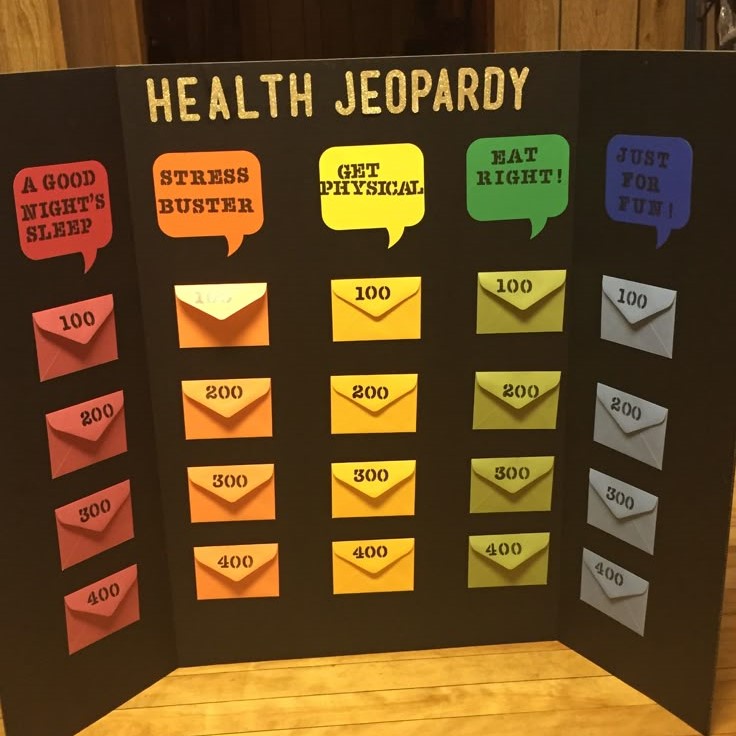
Creating Custom Categories and Questions
Personalizing categories and questions adds a unique touch to the game. Follow these steps:
- Choose Relevant Topics:
- Pick categories that interest the players, like sports, movies, or local history.
- For kids, use school subjects or favorite hobbies as question themes.
- Designing Clues:
- Write clues with varying difficulty levels to suit all skill levels.
- Use factual data to maintain consistency and fairness.
- Adding Fun Twists:
- Introduce picture-based or audio-based clues for added variety.
- Create “wild card” clues with unusual or humorous answers.
- Using Technology:
- Print questions for convenience or use apps for a digital game board.
- Online generators enable quick creation of custom Jeopardy game materials.
Customized categories create a more engaging and memorable game experience for all participants.
Tips for Hosting a Successful Jeopardy Game Night
Hosting a Jeopardy game night can be a rewarding experience. A well-organized night ensures fun for everyone. Follow these tips to make your game night a hit.
Engaging the Players
- Warm Up the Group: Start with an icebreaker question to get everyone relaxed and involved.
- Encourage Participation: Motivate all players to join actively, regardless of their trivia knowledge level.
- Celebrate Correct Answers: Cheer for correct responses to keep the energy high and players motivated.
- Balance Competition and Fun: Focus on friendly rivalry without making the game overly competitive.
- Use Themes: Integrate themes like holidays or famous movies to captivate your audience.
- Recognize Winners: Prepare simple prizes such as certificates or small gifts for winners or participants.
Managing Time and Pace
- Set a Time Limit: Allocate specific time for each round to maintain the game’s pace.
- Keep It Moving: Avoid long pauses between clues or turns to keep players engaged.
- Control the Timer Efficiently: Use a timer to ensure clue responses stay within limits.
- Limit Categories: For larger groups, shorten the board to avoid an excessively long game.
- Prepare in Advance: Have all materials ready beforehand to prevent delays during gameplay.
- Be Flexible: Adjust the length of rounds based on the players’ interest and engagement level.
By engaging players and maintaining the game’s pace, your Jeopardy night is sure to be a success.
Frequently Asked Questions
This section addresses common player concerns and clarifies key gameplay rules. These insights ensure a smooth gaming experience for both new and seasoned players.
Addressing Common Player Concerns
- Can we replace categories with personalized topics?
- Yes, the game allows custom categories based on players’ interests.
- What happens if a player doesn’t answer in the form of a question?
- Answers must follow the question format to count. Hosts can remind players of this rule.
- Can children play the Jeopardy board game?
- Absolutely! You can tailor questions to age-appropriate topics for younger players.
- Is there a time limit for answers?
- Yes, players must respond within the timer’s limit, usually 10 to 30 seconds.
- What if there’s a tie at the end?
- Hosts can present a tiebreaker clue. The first correct response decides the winner.
- Do all players need to answer every clue?
- No, only the player whose turn it is can answer the chosen clue.
Clarifications on Game Rules
- How do Daily Doubles work?
- Players can wager points before answering. Correct answers earn the wagered points; incorrect ones deduct them.
- Can other players answer if someone is wrong?
- Yes, if the initial player answers incorrectly, others can buzz in to try.
- Do clues increase in difficulty with points?
- Yes, higher point clues are typically more challenging.
- What happens during Double Jeopardy?
- Clues are worth double points, and there are two Daily Doubles.
- In Final Jeopardy, do players have to wager points?
- Yes, all players must wager, and the amount cannot exceed their current score.
- Can players skip categories?
- Players choose a category on their turn, so nothing is skipped unless time runs out.
Understanding these common concerns and rules will help players focus on the fun of the Jeopardy board game.
Where to Buy or Create Your Own Jeopardy Game
Finding the perfect Jeopardy board game or creating a personalized version can enhance gameplay. This section explores where to purchase the game and how to craft your own set.
Popular Stores Offering Jeopardy Board Games
To get a Jeopardy board game, you can explore various stores, both physical and online. Here’s a quick guide:
- Toy Stores: Major toy retailers often stock Jeopardy board games in their game sections.
- Department Stores: Stores like Target or Walmart carry Jeopardy games, especially during holidays.
- Online Platforms: Websites like Amazon or eBay offer different versions of the game with reviews to guide you.
- Specialty Game Shops: These shops provide a wider selection, including collector’s editions and rare finds.
- Educational Stores: For trivia-lovers, discover educational versions in stores like Learning Express.
Before buying, check for the edition that matches your preferences.
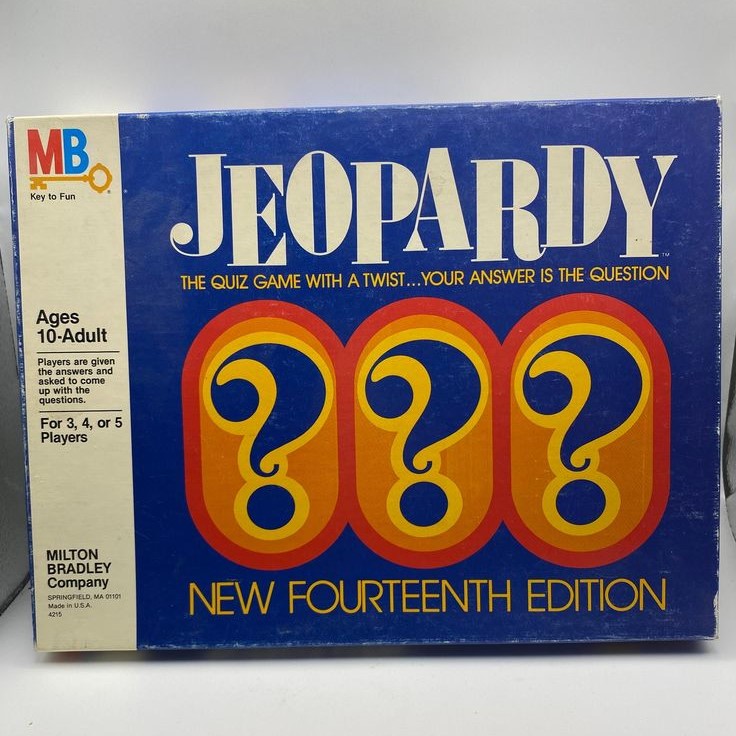
DIY Ideas for Making a Personalized Jeopardy Set
Creating a custom Jeopardy set is economical and adds a personal touch. Here’s how to do it:
- Board Creation: Use a large poster board or a whiteboard to replicate the game grid and point values.
- Category and Clue Cards: Write custom categories and trivia clues on index cards. Add corresponding point values.
- Score Tracker: Use a notebook, or craft a scoreboard using sticky notes or small whiteboards.
- Timer Substitute: Use a smartphone timer or any stopwatch for tracking response time.
- Fun Themes: Tailor themes to suit your group, like family milestones, favorite TV shows, or local trivia.
- Digital Tools: Use free online templates or apps to design a digital Jeopardy game board for virtual play.
Making your own game allows for creativity and customization, making every game unique and memorable.


